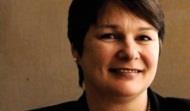Earlier this year, HSJ invited a small group of industry leading figures − male and female − to consider the most inspirational women in healthcare. Their ultimate task was to whittle a lengthy longlist down to just 50 names. Karen Lynas reflects on this challenging process and why she believes it was so important
![]()
I had the pleasure of being part of the judging panel for HSJ’s Inspirational Women in Health. The process was really positive and the other judges were a joy to work alongside though I, of course, left them to it when the time came for my nomination to be discussed.
There may be some people you are surprised to see not included. Part of our duty on the panel was to canvass as widely as possible on the nominations received, and to ask around about where there might be gaps on the longlist.
When we got together to discuss our feedback and thoughts, we found there was a consensus about the sorts of behaviour we wanted to see from our inspirational women. Where those behaviours weren’t evident − or, worse still, where women were not great models in progressing the role of females in senior positions − we knew we couldn’t accept them on to the list.
‘The list is eclectic, including newly emerging individuals alongside the host of senior staff who are inspiring the next generation’
I am curious about why this is. Do we ask or expect too much of women? Would we have reached the same conclusions if we had been having a debate about inspirational men? And does the existence of such women suggest our female leaders currently have to adopt a dominant style to succeed?

The research we did as part of the NHS Leadership Academy’s Top Leaders programme a couple of years ago suggested this behaviour and leadership style is actually more a product of position and seniority than of gender. It seemed that a tendency for people to look for in others what they value in themselves was guiding dominant leaders to promote and encourage other dominant leaders.
I noted earlier in the year that of the 14 signatories to the Department of Health’s response to the Francis report, only one was a woman. The 14 most important, influential and powerful organisations in health are largely run by men.
The highest standards
Who are they identifying as their successors? What impact is their style having on the women who work alongside them? And if some women have developed a particular and dominant style of leadership that is − at least for this panel and their wider networks − not seen to be inspirational, then where do we look to for our role models?
The Inspirational Women list hopefully answers that last question. Our time as a panel was hugely reassuring in that we found many examples of women setting the highest standards. The resulting list is eclectic, including newly emerging individuals alongside the host of senior staff who are inspiring the next generation.
‘I hope we can all agree it is a good time to be grateful for those women making a difference in their own way’
We have so many wonderful women working in healthcare. Their unique skills, talents and behaviours are what make them the kind of people we should rightly treasure. It is up all of us to make sure we recognise, value, reward and promote what makes them different if we want to see men and women equally represented at the top levels of healthcare.
It is our loss if these women remain less influential than they should be because they won’t compromise their behaviours or ways of working, or if we force them to change to fit in with what we currently think of as senior and successful.
So here’s to celebrating the women we name as our inspirational list. Whether you agree with our choices or think we have missed some treasured gems, I hope we can all agree it is a good time to be grateful for those women making a difference in their own inspirational way.
Karen Lynas is deputy managing director and head of programmes and practice team at the NHS Leadership Academy
























1 Readers' comment